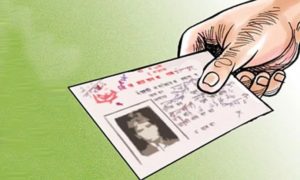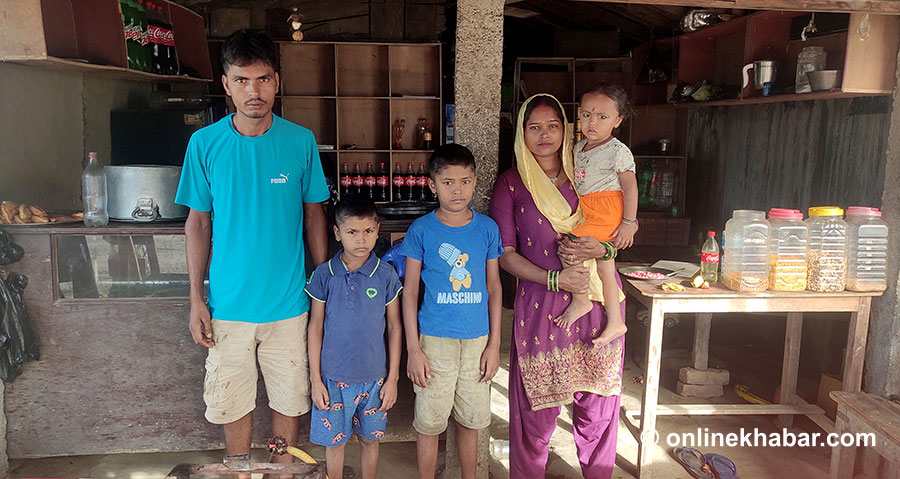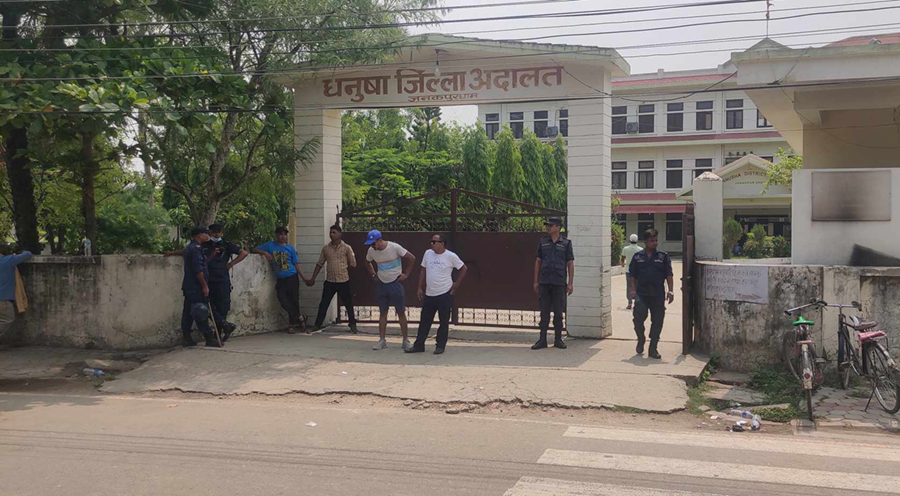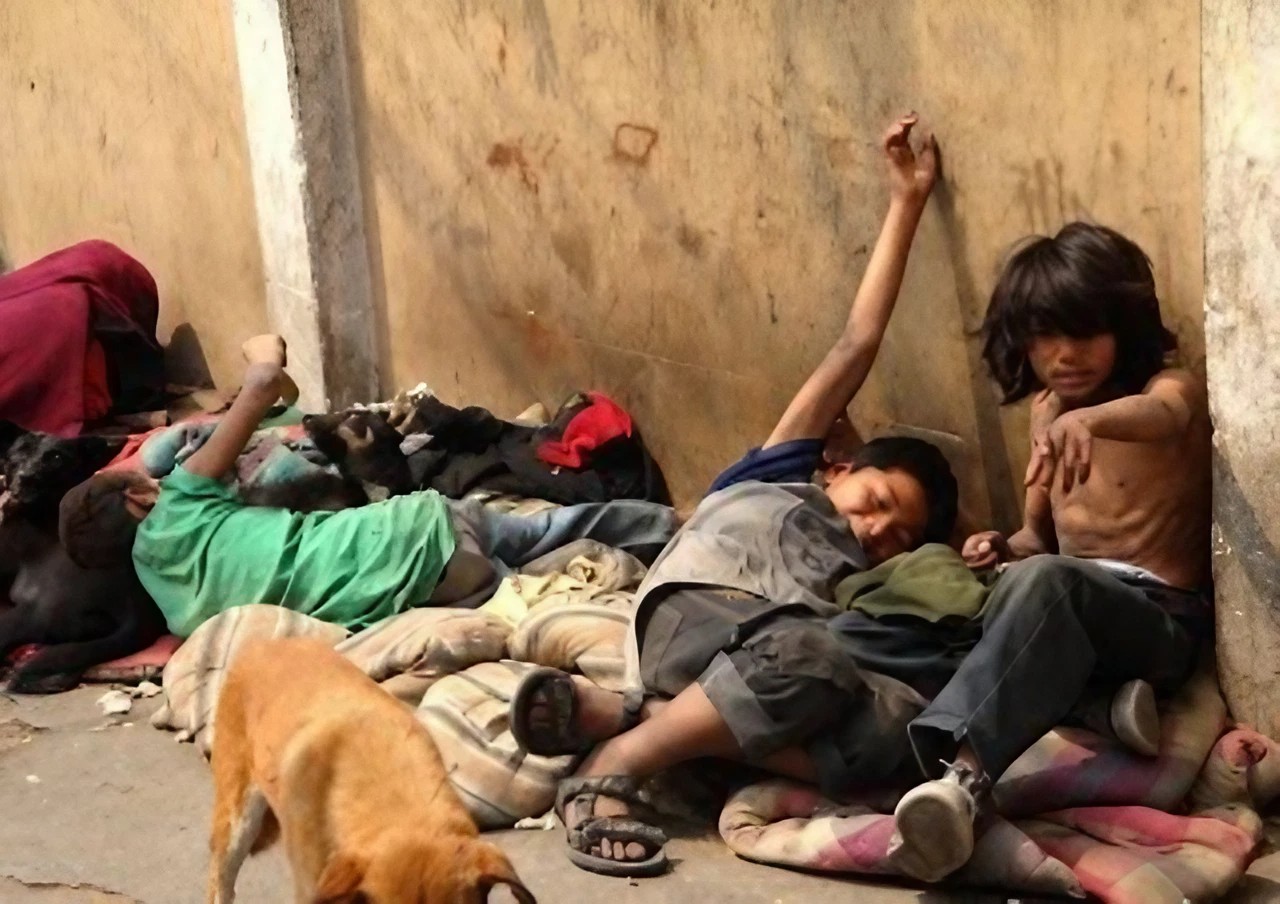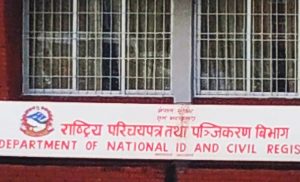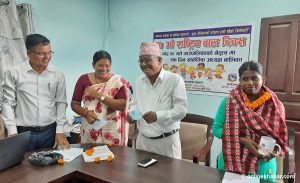
Laxman (26) of Sindhupalchok lost his parents at a very young age. His father left the family and never came back and his mother died of cancer and jaundice. The situation compelled him to live on the street before he was rescued by an NGO-operated shelter. There, he learnt plumbing, which helped him to sustain himself as a plumber.
But, at this point, Laxman is uncertain of his future because his parents did not register his birth at the local government. Without a birth certificate, he could not apply for his citizenship as well. Moreover, as he has moved far away from his birthplace, he does not know anyone from the family who could help him get one.
This has made him live a life of a refugee in his own country—without a birth certificate or citizenship. It means he is deprived of getting standard job opportunities and even opening a bank account.
There are many others like him who have not been able to get legal documents and are living a life full of hardships.
Many cases

Dikshya (17) also does not have a birth certificate either. This ninth grader was five, and her brother Sonam seven, when they lost their parents. She does not know anything about her father except his name; she knows her mother passed away due to jaundice. Neither does she clearly tell anything about her original address.
After her mother’s death, their neighbours took care of them. Later, Sonam got a job as an assistant at a hotel in Kathmandu. But, Dikshya says the future of both siblings hand in the balance as both do not have birth certificates.
“If my parents were with me, I wouldn’t have to go through such trouble,” says Dikshya.
Having legal documents means having a certain sense of security. Without legal documents, a person has to go through unnecessary hassles even to meet their basic needs like education, health, employment opportunities and more.
Another child who is facing difficulties in getting an education due to a lack of such papers is 10-year-old Deepak from Okhaldhunga. Deepak is living with his parents, but his parents are unable to get his birth certificate as they too lack their legal documents.
Deepak’s school is asking him for his birth certificate, warning he might need to drop out upon failure.
“Getting a birth certificate is a fundamental right of all children,” says advocate Binu Lama. “If they do not get one, they will be deprived of education and many other basic rights”
Kabita Shah, a resource executive at SathSath, an organisation working for the rights of children and youth, says that the government does not have any proper mechanism to address such a situation. Even such people are not identified properly, she says.
Shah further says that the government also does not have any appropriate mechanism to identify such people.
“This is why many children around the country have been deprived of their basic rights.”
Challenges galore

In a case when a child is orphaned or if they do not have legal documents of their parents, they can acquire birth certificates if ward officials can verify their birth. It can also be done with a recommendation from a government-recognised orphanage.
However, there are many children whose all doors to alternative solutions are closed. They grow up in the street and have never been to an orphanage. These children are also not brought up in a specific ward as they are on the move.
According to article 39 of the constitution of Nepal, “Every child shall have the right to name and birth registration along with his or her identity”
Article 7 of the UN Convention on the Rights of the Child states, “The child shall be registered immediately after birth and shall have the right from birth to a name, the right to acquire a nationality.”
“Where a child is illegally deprived of some or all of the elements of his or her identity, states parties shall provide appropriate assistance and protection, with a view to re-establishing speedily his or her identity,” states article 8.
Need for revision
Advocate Lama hence sees a need for revision in policies to address the problem.
But, child rights activist and advocate Sagar Bhandari says the government agencies seem not prepared for this although the number of children without birth certificates is significant.
Bhandari shows disappointment against the birth registration software used by the government that mandatorily asks for the citizenship number of either father or mother.
“This has troubled thousands of children, who do not have legal documents of their parents,” says Bhandari. “The software must be made flexible.”
Laxman Dhakal, a director at the Department of National ID and Civil Registration, however, denies this. He says that the requirement of the citizenship number of either father or mother to register a birth certificate is not a completely mandatory procedure.
If the child does not have legal documents of the father or mother, the citizenship number of the ward chair (informant) can be used to issue a birth certificate.
But, the reluctance of people’s representatives to be informants for issuing birth certificates is a big problem, says Bhandari.
“Despite the ward chairperson having the power to be an informant and verify date of birth, they are reluctant,” advocate Bhandari says. “They think recommending a birth certificate means recommending citizenship, which is totally wrong.”
Devi Dotel, an official at the National Child Right Council, a government body working for child rights, informs that a study has been made to resolve the problem of children without birth certificates. The final report will be public within a couple of months, she says.
“Our policies are still very complex to address the issue,” says Dotel. “It needs to be revised.”
This report is prepared under a fellowship provided by SathSath.






